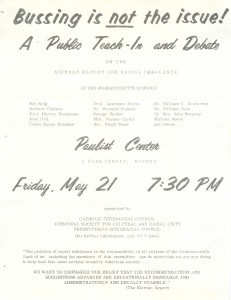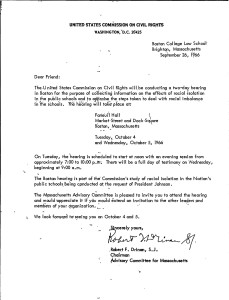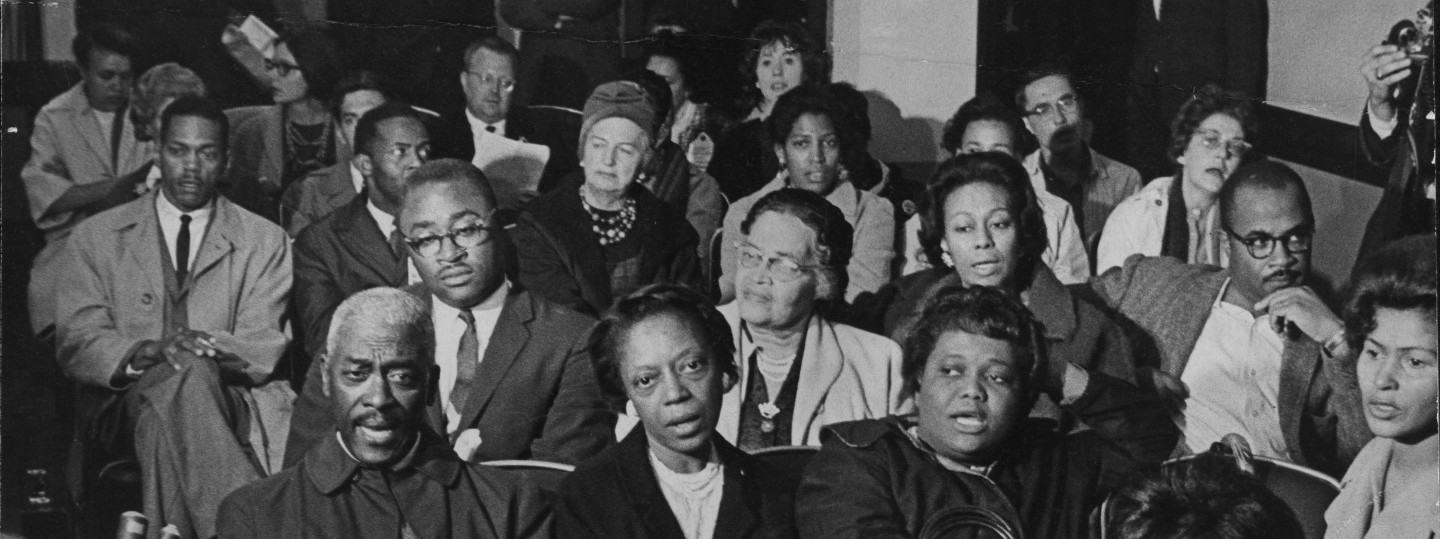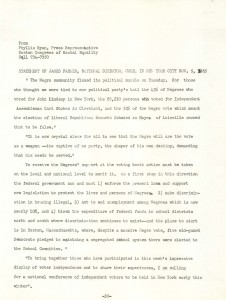
On February 28, 1965, the Congress of Racial Equality (CORE) leader James Farmer called a press conference to discuss the school crisis. His speech at this event set the tone for activism following the passage of the Racial Imbalance Act.
To receive the Negroes’ support at the voting booth action must be taken on the local and national level to merit it. As a first step in this direction the federal government can and must 1) enforce the present laws and support new legislation to protect the lives and persons of Negroes; 2) make discrimination in housing illegal; 3) act to end unemployment among Negroes which is now nearly 10%; and 4) block the expenditure of federal funds in school districts north and south where discrimination continues to exist—and the place to start is in Boston, Massachusetts, where, despite a massive Negro vote, five old-guard Democrats pledged to maintaining a segregated school system there were elected to the School Committee.
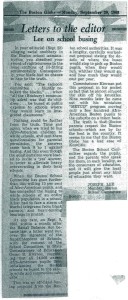
Between 1965 and 1968, the number of racially imbalanced schools rose from 46 to 57, despite there being no significant increase in the percentage of black students in the schools, showing the ineffectiveness of the Racial Imbalance Act. As more parents asked for the school system to support inter-district busing, the School Committee (BSC) refused, even though they paid for white students from Clap School to be bused after their school burned down. School officials showed that their opinions had not changed from the interviews in the early 1960s. BSC Chairman John J. Kerrigan wrote off racial issues as artificial, and said, “the most skillful, dedicated teacher cannot overcome in five hours the destructive environmental home conditions in which some children exist for 19 hours a day.”
